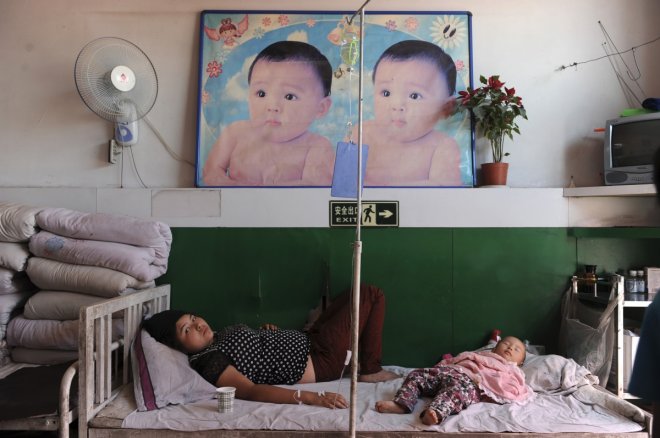
China's "Physicals for All" project in Xinjiang, which provides free healthcare to impoverished minority citizens, has been accused of collecting and storing DNA samples and blood types of people by Human Rights Watch organisation.
The health-care initiative was started in 2016 and runs every year from July to November. In 2017, data from over 18 million Chinese residents was gathered through this system, which is used by the police to keep personal records of the public. It is unclear whether citizens are aware of their records being kept by the Communist regime.
Also read: China launches free week-long health campaign in Nepal
Although China has a set of rules and regulations about keeping tabs on its residents, this revelation comes as a shock as it is in the guise of a public welfare program. The Xinjiang Uyghur Autonomous Region, inhabited by 10 million Uyghurs and other Muslim ethnic minority communities, already struggles to maintain peace.
The HRW report states that DNA samples, fingerprints, iris scans and blood types of all residents between 12 and 65 years of age are retained by the Chinese government, adding to its biodata bank. The focus personnel – people who are considered harmful for regime stability by authorities – have to get all their family members registered, irrespective of age.
"Xinjiang authorities should rename their physical exams project 'Privacy Violations for All,' as informed consent and real choice does not seem to be part of these programs. The mandatory databanking of a whole population's biodata, including DNA, is a gross violation of international human rights norms, and it's even more disturbing if it is done surreptitiously, under the guise of a free health care program," says Sophie Richardson, China director, as reported by Quartz.
The guidelines for the healthcare programs were given to offices on July 2, 2017. According to the state media, the Xinjiang government made the Population Registration Program official in February 2017 and also gave a timetable for carrying it out.
Although the health check-up has been termed voluntary, reports say that people have been coerced to participate in it, citing "political disloyalty". All the medical examination reports have not been given to citizens yet.
In the concerned region, veils, long beards and religious activities in school are banned. DNA samples are mandatory to obtain passports and cars must be fitted with a GPS so that the government can track their movements. Failure to do will lead to being denied service in gas stations. The Chinese government's sneaky way of exercising authority has raised many questions by human rights associations across the world, who consider this a gross violation of privacy.









